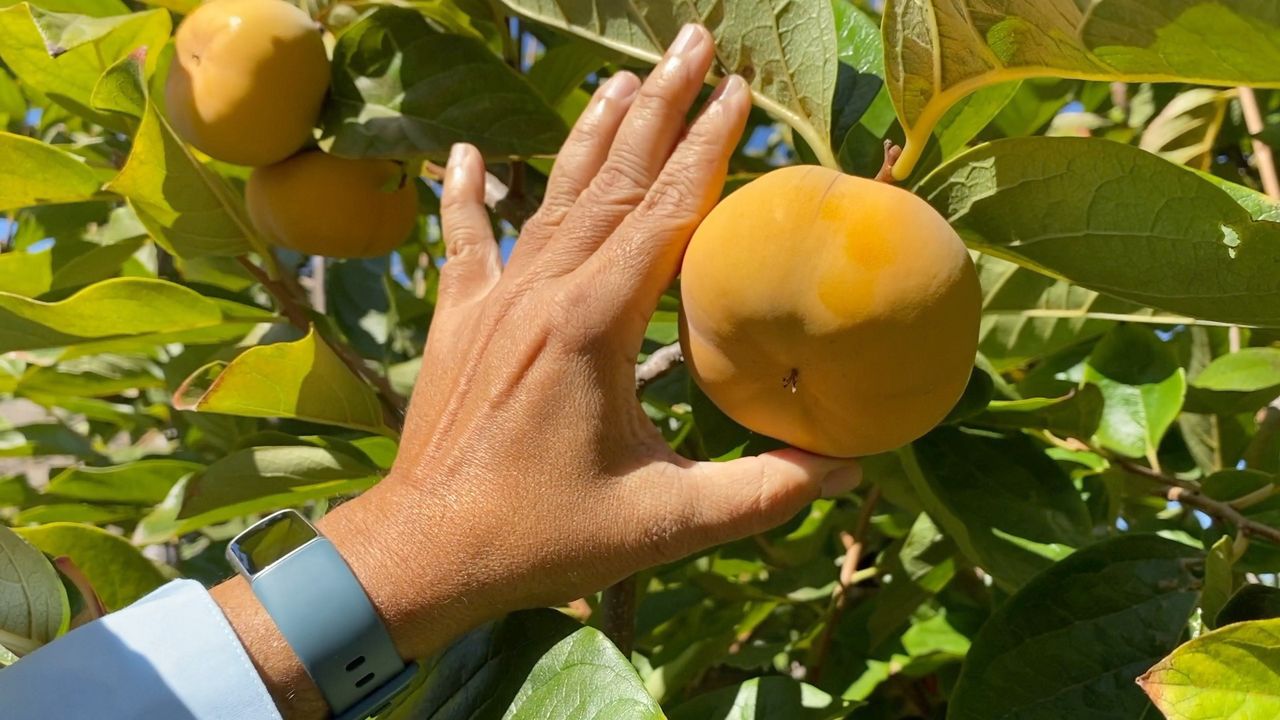SAN DIEGO — California schools are partnering with local farms to improve the health and well-being of schoolchildren around the state.
Walking through a persimmon grove at Sahu Subtropicals sparks childhood memories for Janelle Manzano.
“I grew up eating persimmons,” she said. “I’m Filipino and so my mom always brought these home every fall.”
Manzano is the Farm to School educator for the San Diego Unified School District. She’s looking at the persimmons that will soon be served to students.
“It’s a big, big start to them expanding their taste buds,” Manzano said.
The San Diego Unified School District is partnering with farmer Ron Sahu. When he took over his farm Sahu Subtropicals 15 years ago, he immediately made the switch to organic farming and has been using regenerative practices ever since.
“It was done as much for my customers as it was for my workers and their children who lived on the farm,” Sahu said.
He is passionate about introducing people to the fruits he enjoyed as a child growing up in India. Sahu Subtropicals is in San Diego County and grows thousands of his famous Fuyu persimmons. Every single one will go to students in the San Diego Unified School District.
“They all eat the standard fruit: the citrus that we grow here and the avocados,” Sahu said. “But whether it’s a guava or a persimmon or it’s a kumquat or even blueberries, these are a little more esoteric. Folks, they are getting to enjoy what is grown locally, and that helps everybody and it maintains the quality of the fruit.”
At Horton Elementary, Sahu’s persimmons are showcased as the Harvest of the Month to a hoard of hungry 8-year-olds.
“It tastes yummy and really good,” student Melanie said.
“It just tastes a little sweet,” student Elissa said.
Manzano is making sure every student gets a chance to try the locally grown persimmons. For some, it’s their very first taste of persimmons. She says their salad bars feature a variety of fruits and veggies sourced from local farmers and she’s glad students can try new foods that excite them.

The California Department of Food and Agriculture says California schools serve hundreds of millions of meals each year, and expanding opportunities for local food procurement that is tied to food-based education is essential for establishing healthy eating habits that children can carry into adulthood.
Manzano believes they are fortunate to find a farm like Sahu Subtropicals that can provide the school district with organic gorgeous fruit that’s also right in their backyard.
“I just truly believe in the food that we’re putting on the table and so I feel a deep connection to it and I want my students to appreciate it,” she said.
“There aren’t that many steps from picking them off the tree, cleaning it a little bit, and just putting it in very rudimentary cardboard boxes and sending it to the schools,” Sahu said.
In September, Horton Elementary was recognized as one of America’s Healthiest Schools.



